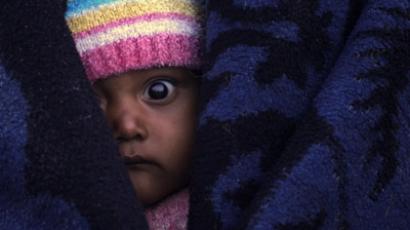Cashing in on Nepal’s youth
Child trafficking is rife in Nepal, with many unregistered orphanages in the capital, Kathmandu, housing thousands of trafficked children. The thriving market for illegal adoption has turned the practice into a highly lucrative business.
Widespread corruption and a high demand from the West for adoptive children are fuelling the growing trade.Now it has emerged that 80 per cent of children put up for adoption already had parents.Child rights organizations estimate that there are currently around 15,000 children living in orphanages in Kathmandu. The numbers are very difficult to keep track of given that many of the capital’s orphanages are unregistered and as such, not regulated by the government.Child-traffickers will often travel to far-flung rural areas of Nepal where they prey on poor families, drawing them in with promises of a better life and education for their children. Traffickers can reportedly buy a child for as little as $15 and then turn a profit selling them to one of Kathmandu’s 500 children’s homes.An orphaned child can then fetch up to $25,000 if sold on to families from abroad.Conditions in the capital’s orphanages are abysmal with widespread reports of abuse and children being forced into work. Chinmohan Chaudhary, a Nepalese boy who had lived in one of the orphanages, told RT’s Priya Sridar that the homes would be given rations for the children but the caretakers would take half the food for themselves while giving the kids only a small portion.“They would also get drunk and would beat us,” he added.The Nepalese government currently has a freeze on child adoption to Western countries due to rampant cases of abuse, fake documents and false statements.Ramesh Bhomi from Nepal’s Children Organization says the government ban has only tackled part of the problem. Ramesh is the owner of 11 legal orphanages across the country which had previously received revenue of $5,000 for every child that was adopted from abroad which went towards the running of the organization. “It has been difficult for us to run the homes after the suspension of international adoption because we still have to provide for the daily necessities of every child in the home and take care of their medical bills too,” he said.In the absence of revenue from foreign adoption, Nepalese orphanages have found another revenue stream. Volunteers, tricked through Internet scams into donating money to fake orphanages, are providing a new cash flow fuelling child-trafficking. The Nepalese government has done relatively little to curtail the trade in children. At the moment, there is no policy that effectively regulates children’s homes in Nepal. Moreover, the state does not provide funding to orphanages, forcing them to make ends meet however they can.













